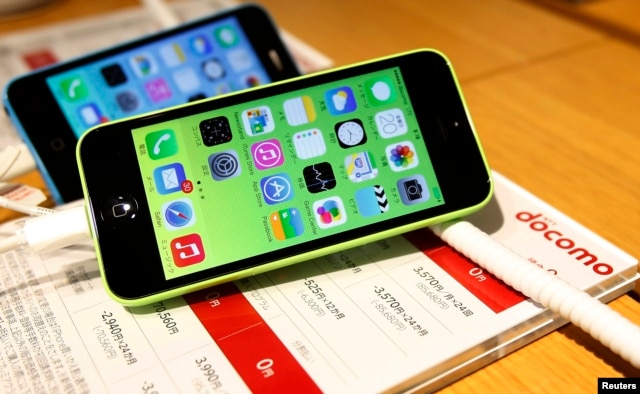US Bid to Compel Apple iPhone Hack Returns to Court

The battle between the U.S. Justice Department and Apple returns to a federal courtroom Monday as the government tries to get the iPhone maker to comply with an order to help it access the phone of a mass shooter.
A magistrate judge said last week Apple must provide software to allow the Federal Bureau of Investigation (FBI) to guess the password on an iPhone given to Syed Rizwan Farook by his employer before he and his wife Tafsheen Malik killed 14 people in San Bernardino, California last year.
But Apple rejected what it called the «unprecedented» order to create a backdoor that could allow someone with the software to access any iPhone and put its customers at risk of hacking.
The government fired back with a motion to make Apple comply, and ahead of Monday’s hearing FBI Director James Comey insisted the government is not trying to set any precedent for future cases or «set a master key loose on the land.»
Comey said «it is about the victims and justice,» and that the tensions between privacy and safety should not be resolved by corporations or the FBI, but rather the American people.
FILE – These then-new Apple iPhone 5c models were on display in at Tokyo store, Sept. 20, 2013. A 5c is at the center of Apple’s battle with the FBI over efforts to break the company’s proprietary auto-destruct security system.
Strengthened encryption frustrates law enforcement
The case is the latest to showcase the frustrations of law enforcement officials who complain that newer encryption methods used by companies like Apple make it harder to carry out investigations involving suspects’ technology use. Apple strengthened encryption of its phones in 2014 amid increased public concern about digital privacy.
In the San Bernardino case, the problem is that authorities do not know the password to unlock the iPhone, and the operating system on the phone is set up to automatically erase its data after 10 incorrect password guesses. The court order calls for new software to bypass that feature, or for Apple to provide another way for the FBI to get in.
The government’s motion that led to Monday’s hearing says the phone may have «critical communications and data» that have not yet been seen, may only be found on the phone and cannot be accessed by other means.
Apple CEO Tim Cook wrote last week that the company has given the FBI any relevant data it possesses, complied with all legal subpoenas and search warrants, and has offered its engineers’ advice to federal investigators.
«While we believe the FBI’s intentions are good, it would be wrong for the government to force us to build a backdoor into our products. And ultimately, we fear that this demand would undermine the very freedoms and liberty our government is meant to protect,» Cook wrote.


